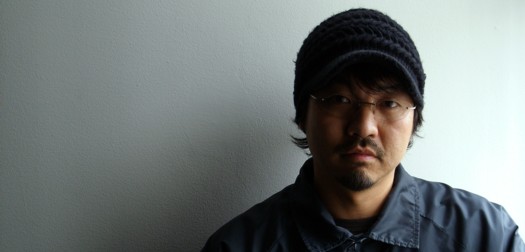Features
Conversation with Benson Lee, Director of Planet B-Boy
by Matt Bushlow
April 6, 2009
Conversation with Benson Lee, Director of Planet B-Boy
by Matt Bushlow
April 6, 2009
page 3 of 3
|
|
|
|
 |
||
|
|
|
One of the biggest problems with b-boying is that people argue constantly, tooth-and-nail, over history. It's an oral tradition that was passed down, and there's a lot of debate. Nothing was documented, really, except for the stuff in the newspapers, and these kids are really hungry for their history, their legends. So there's this whole culture that's been raised in sort of a Kung Fu movie manner, where everyone looks at Ken Swift, who was in my film--he's one of the Rock Steady guys--he's really a legend. People are scared to talk to him. It's like meeting Mickey Mantle to these kids. And they're all raised on tradition. That's why the Koreans, they really bow to the Americans and say, "Look, you're right, we need to add more dancing into our dance," because the guys will go there and fucking tell them what's up. And they'll really, really take heed and say, "Okay, let's do this, master. We'll work on it." It's so like that. They romanticize Kung Fu movies big time. There's a big correlation between martial arts and b-boying, with the movement and all that and the way they train, because they don't go to school; they're like this lonely warrior who's just out on their own, training every day. Most of these dancers are in their prime; they train every day. Blood, sweat, tears--and they make no money. They totally relate to that whole martial arts paradigm, man. That model. They've got their elders, their O.G.s who tell them what's up: You guys have to listen to this; you guys have to do it this way. They're always dropping knowledge and wisdom, teaching them these life lessons through the dance. It's so deep. And that's exactly what I'm trying to go for in this film.
new to state of mind
Shows: moe.
Shows: Yonder Mountain String Band
Shows: Grand Point North 2014
Shows: Catskill Chill 2014
Shows: moe.down 15
Shows: Gov't Mule
Shows: Umphrey's McGee
Shows: Newport Folk Festival 2014
Shows: Widespread Panic
Albums: Phish - Fuego
Shows: moe.
Shows: Yonder Mountain String Band
Shows: Grand Point North 2014
Shows: Catskill Chill 2014
Shows: moe.down 15
Shows: Gov't Mule
Shows: Umphrey's McGee
Shows: Newport Folk Festival 2014
Shows: Widespread Panic
Albums: Phish - Fuego
most popular
Blog: New Video/Song From Dr. Dog - "Broken Heart"
Blog: Radiohead: Adam King tries to convince me they are aliens…
Blog: Mountain Oasis welcomes NIN‚ Bassnectar and Pretty Lights
Blog: Mehliana Tour (Brad Mehldau + Mark Guiliana)
Blog: Video: Club d'Elf with Marco Benevento - "Bass Beatbox"
Blog: Reed Mathis and Victor Wooten Talk Bass
Features: Conversation with Kurt Rosenwinkel
Features: Conversation with Tommy Benedetti of John Brown's Body
Features: Conversation with Bill Kreutzmann
Shows: Rothbury 2009
Blog: New Video/Song From Dr. Dog - "Broken Heart"
Blog: Radiohead: Adam King tries to convince me they are aliens…
Blog: Mountain Oasis welcomes NIN‚ Bassnectar and Pretty Lights
Blog: Mehliana Tour (Brad Mehldau + Mark Guiliana)
Blog: Video: Club d'Elf with Marco Benevento - "Bass Beatbox"
Blog: Reed Mathis and Victor Wooten Talk Bass
Features: Conversation with Kurt Rosenwinkel
Features: Conversation with Tommy Benedetti of John Brown's Body
Features: Conversation with Bill Kreutzmann
Shows: Rothbury 2009
